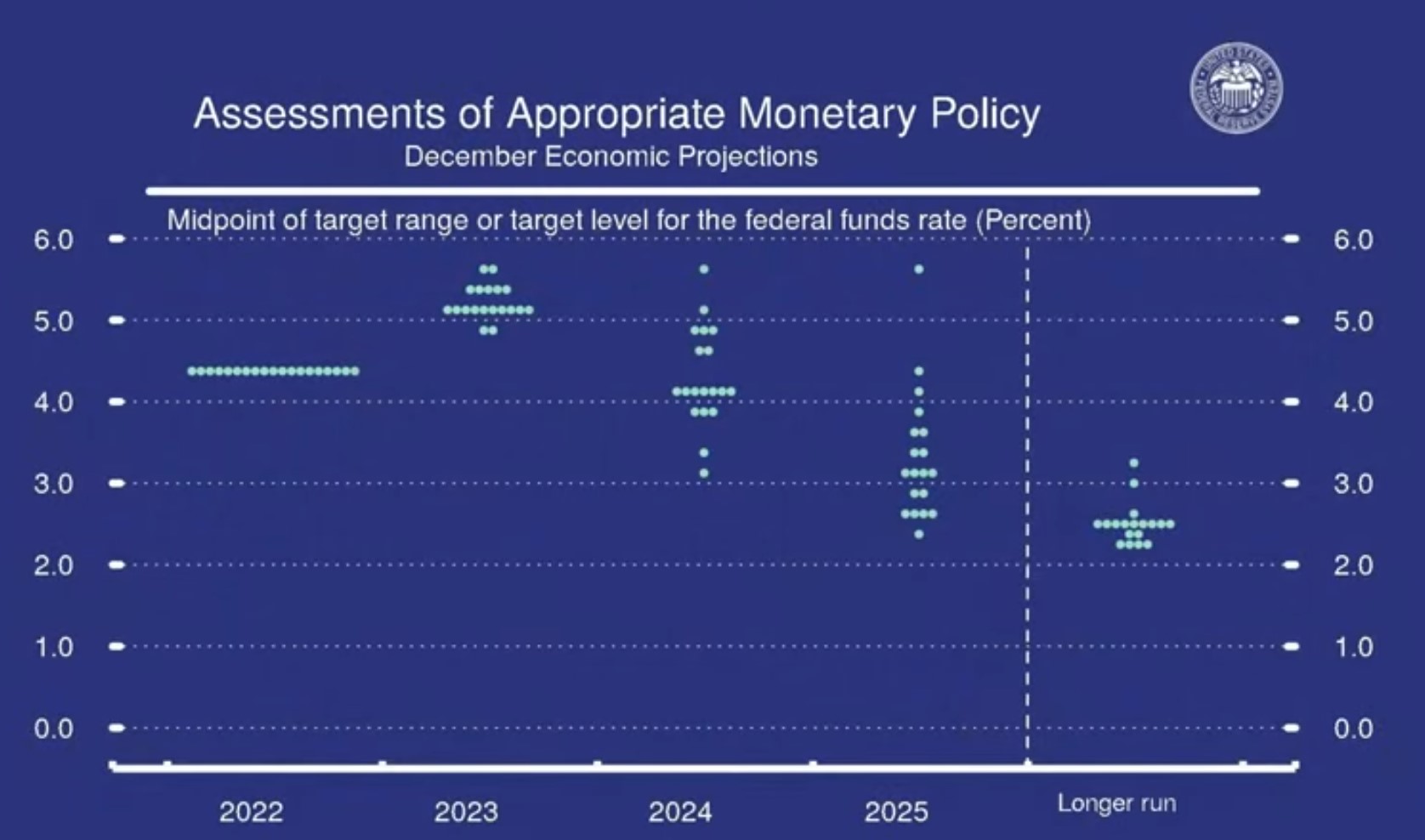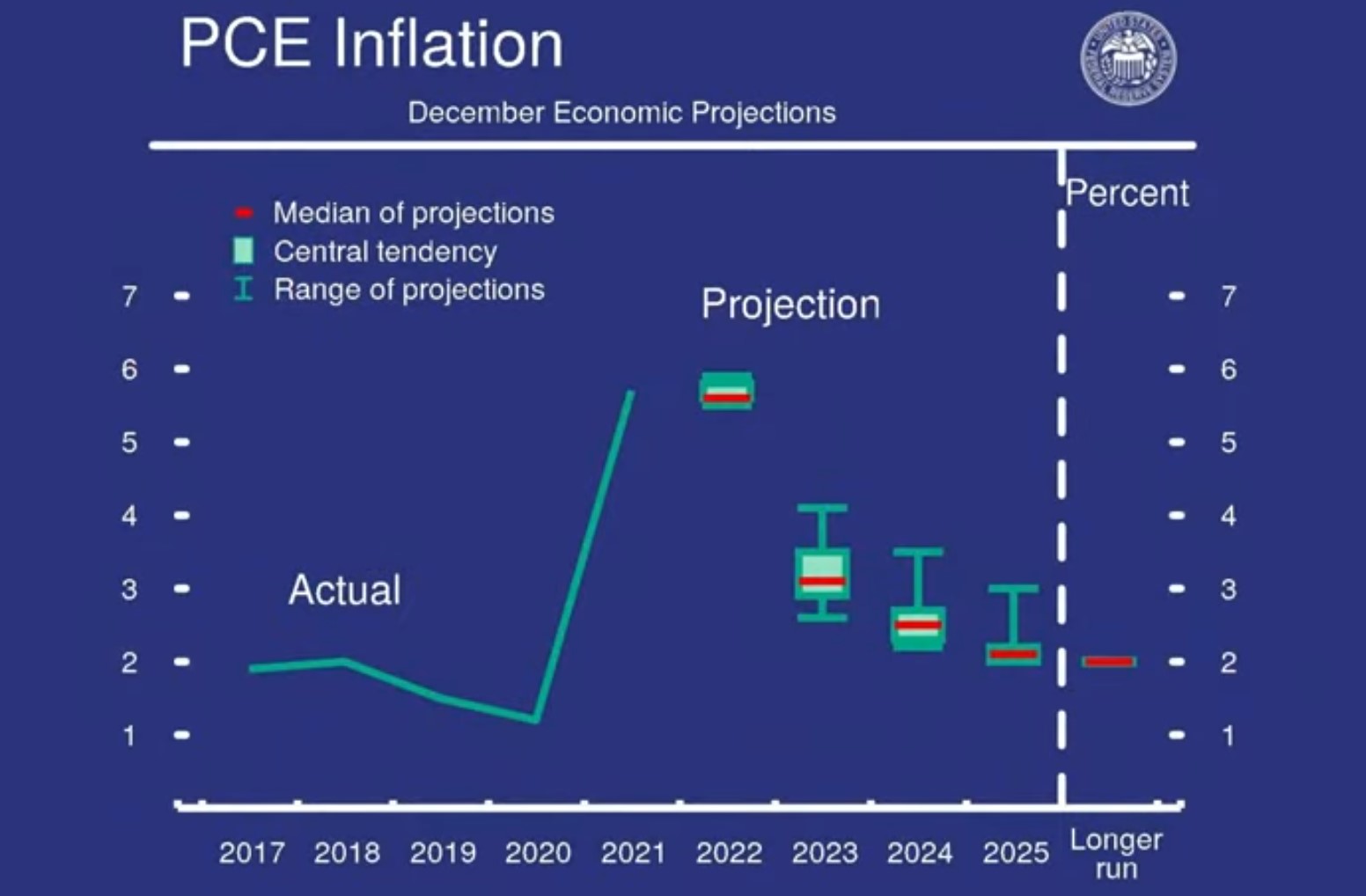The US Federal Reserve announced a 50 bp increase in the federal funds rate in line with market expectations to place it in a target range of 4.25%-4.50% (the highest level in 15 years – since 2007), mitigating the 7th and last increase of the year compared to the last four that were 75 bp, rising a total of 425 bp during 2022.
The Fed does not plan to stop on its way to return inflation to its 2% target while maintaining maximum employment, which is why, during today’s statement, its chairman Jerome Powell pointed out that “We have more work to do” and that “there is a long way to go”, with “continued increases” expected. The first is expected to be 25 bp in February, which “will depend on incoming data” and from there the pace will be set taking into account “the cumulative tightening of monetary policy, the lags with which monetary policy affects economic activity and inflation, and economic and financial developments.”

During the press conference, Powell stressed that “there are no rate cuts in the projections for 2023” and that there will not be until the Fed “has full confidence that inflation is continually falling to the target”, for which it will have to “maintain restrictive rates for a sustained period of time”.
The FOMC continues to modify its monetary policy, making it increasingly tight; however, Powell remarked that it is “not yet restrictive enough”. Regarding the cap on rates, he proclaims that although “it is approaching a sufficiently restrictive level of rates (being the current maximum close to 5.5% that can be observed in Graph 1 in the year 2023) he cannot say with confidence that the estimate of the terminal rate will not be raised.”
The projections have been adjusted, with the midpoint graph of the target range for the federal rate pointing to a change from 4.6% to 5.1% for 2023 (75 bp above the current level), from 3.9% to 4.1% for 2024 and from 2.9% to 3.1% by 2025.

The GDP growth forecasts increased from 0.2% to 0.5% for this year but were reduced for the next ones, falling from 1.2% to 0.5% for 2023, from 1.7% to 1.6% for 2024 and maintaining a level close to 1.8% by 2025.

At the opening of the conference it was noted that the labor market remains “extremely tight” and “unbalanced”.
The FOMC also mentioned that “recent indicators point to moderate growth in spending and output; while job creation has been strong in recent months and the unemployment rate has remained low.”
Projections for unemployment rates look slightly higher at 3.7% for the current year, 4.6% for 2023-2024 and 4.5% in 2025. However, the FED stated that “the higher unemployment rate does not reflect a weaker labor market.”

Personal Consumption Expenditure Price Inflation is expected to project 5.6% for this year and increase from 2.8% to 3.1% by 2023, from 2.3% to 2.5% in 2024 and from 2% to 2.1% in 2025.

Powell remarked that “there really is an expectation that services inflation won’t come down as quickly, so we’re going to have to stay that way and we may have to raise rates more, to get to where we want to go. “
It can be seen that the problem of inflation is not solved; meanwhile, the latest data shows us that the Fed is on the right track, appreciating the fall in headline inflation of -2.0% from its highs in June of 9.1% to 7.1% currently. The segments are led by a year-over-year increase in food and beverages of 10.3% with an accumulation of 6.8% since January, but with a low monthly variation of 0.2%. In second place housing and transportation are at 7.8 % year-on-year with an accumulation of 7.4% since January with a small variation of 0.3% in the first but with a good contraction of -1.2% in the second, thanks to the reduction in oil costs.
The FOMC noted that “The war and related events are contributing to upward pressure on inflation and are weighing on global economic activity. The Committee is very attentive to inflation risks”.
Regarding the balance sheet, Powell reaffirmed that “the FOMC will continue to reduce its holdings of Treasury securities and agency debt and agency mortgage-backed securities, as described in the Plans to Reduce the Size of the Federal Reserve Balance Sheet that were issued in May”.
Technical Analysis – USDIndex $103.83

USDIndex price extended losses during the press conference breaking the previous low at 104.15 and marking a new floor at 103.37 (testing the lows of June 27). Interestingly despite the selloff, the asset held in the descending wedge observed since the mid of November. A move below the triangle and a break of the 103 level could open the doors to 102-101.30, with the latter being a key support level as it represents the bottom of a cup and handle formation seen in May-June 2022. To the flipside a move however above 200-DMA (105) could find some buyers and could retest the 107 area again.
Click here to access our Economic Calendar
Aldo Zapien
Market Analyst
Disclaimer: This material is provided as a general marketing communication for information purposes only and does not constitute an independent investment research. Nothing in this communication contains, or should be considered as containing, an investment advice or an investment recommendation or a solicitation for the purpose of buying or selling of any financial instrument. All information provided is gathered from reputable sources and any information containing an indication of past performance is not a guarantee or reliable indicator of future performance. Users acknowledge that any investment in Leveraged Products is characterized by a certain degree of uncertainty and that any investment of this nature involves a high level of risk for which the users are solely responsible and liable. We assume no liability for any loss arising from any investment made based on the information provided in this communication.



















